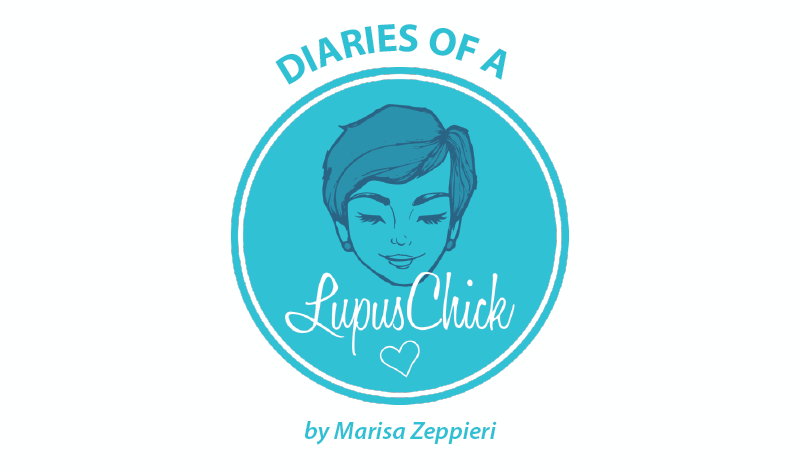When Brain Fog Clouds Your Day
Written by |

I knew I was supposed to be doing something important, but for the life of me, I couldn’t remember what it was. For many of us who struggle with brain fog, this is a common scenario. But brain fog can go beyond just forgetting what you were supposed to do, or why you came into a room. Also known as cognitive dysfunction, brain fog symptoms can range along a wide spectrum.
While researching brain fog recently, I came across a study conducted in early 2017. Its conclusion stated that two thirds of the SLE patients in the study were suffering from cognitive dysfunction, a common symptom of neuropsychiatric syndrome related to SLE. If you are unaware or newly diagnosed, you may not yet know that lupus can affect the brain. If the brain is affected, some — but not all — patients can experience seizures, stroke, headache, mood changes, and cognitive dysfunction.
According to The American College of Rheumatology’s revised terminology, cognitive dysfunction is now considered a major neuropsychiatric symptom and defined as: “a significant deficit in any or all of the following cognitive functions: complex attention, executive skills (organizing, planning, sequencing), memory (recall, learning), visual-spatial processing, language (verbal fluency), and psychomotor speed.”
And while it is so very real for those of us who are experiencing brain fog, it may be hard to describe to others or for them to comprehend, or even believe.
For many lupus patients who experience brain fog, there are times it interferes with our employment, completing tasks, and even speaking or recalling a word. So, what can we do about it?
For starters, you will want to have an honest conversation about any cognitive impairment with your physician. Additional testing or scans to determine if a more serious condition is affecting your brain can be completed. If all symptoms are specifically associated with SLE, there are some coping mechanisms and lifestyle changes that can be implemented.
Here are a few strategies I use myself or are popular with other patients I speak with:
- Stress management – Most of us know by now that stress can harm our health and intensify symptoms we are already experiencing. I’ve personally noticed in times of severe stress and/or flare, my brain fog gets worse. Stress relievers that have worked for me include keeping a journal, guided breathing or mindfulness meditations, enjoying a restorative yoga workout (restorative yoga stimulates the parasympathetic nervous system, relaxing it), or speaking to someone such as a psychologist or counselor.
- Making lists – I never thought that I would be someone who had small lists all over the house! My days typically now begin with a list of things I want to accomplish, and I rollover tasks I haven’t completed to the following days. Grocery shopping and other errands are included, and I take it one step further. I will approximate the time I need to be in each store, so I can determine whether I have the energy to do so.
- Keeping a placement routine – After many hours of my life lost searching for keys, a purse, shoes, or my wallet, I now make a point to put everything in the exact same spot. This not only helps me find it quickly, but on the difficult days, I can tell someone what I need and exactly where they can find it.
- Counseling – Personally, I have found counseling to be an enormous help in dealing with all types of lupus-related issues. Having a neutral person listen to you, and help you come up with coping strategies, can take away much of the stress we carry. Counseling can also be very freeing, especially if you don’t feel comfortable speaking about certain topics with your family or friends.
- Supplements – Working with functional medicine doctors and nutritionists, I have found that items such as green tea, MCT oil, and licorice root help keep me alert. Consider speaking with a nutritionist to see what can help you (and that won’t interact with medications).
- Cellphone reminders – Setting up text reminders on my phone on days I am feeling sharp and alert have become a huge help on the bad days. I will also set the same reminder up to three times, in case I am distracted or not feeling well when the first reminder goes off.
Medical professionals who specialize in cognitive dysfunction can also share tips and coping mechanisms. These professionals include cognitive therapists, neuropsychologists, and occupational therapists.
While there isn’t a quick fix for brain fog, I am thankful that we live in a time when it is taken seriously and being studied in order to find more answers and solutions.
What have you found to be helpful? Leave your advice in the comments below!
***
Note: Lupus News Today is strictly a news and information website about the disease. It does not provide medical advice, diagnosis, or treatment. This content is not intended to be a substitute for professional medical advice, diagnosis, or treatment. Always seek the advice of your physician or other qualified health provider with any questions you may have regarding a medical condition. Never disregard professional medical advice or delay in seeking it because of something you have read on this website. The opinions expressed in this column are not those of Lupus News Today or its parent company, Bionews Services, and are intended to spark discussion about issues pertaining to lupus.






Suzanne Zeleznik
Brain Fog &/ or strokes?! Apparently, I had been having mini-strokes for several years prior to the big stroke in 2015.
What helps me is losing 40+ lbs. thru a lot of exercise & eating little sugar & salt; small portions, of fish; lots of fruit & veggies. But exercising helps me the most with mood changes/ depression, stress. Also, planning my day with lists for the day& crossing off as the day goes by.
Jill Blackstone
If someone has anyone question that brain fog is real, I'm here to tell you it SO is. That was one of my first clues that something other than grief over a long-buried trauma was wrong. I was a high functioning very successful executive who suddenly started carrying my mail around without opening it for weeks. I got a Tile for my keys and wallet because I was constantly losing them in the house. Mindful meditation helped a lot because it uses techniques like -- and this is a simple one -- changing which hand you wear your watch. How many times do you glance at your watch while doing something else, and realize you still don't know what time it is? So when you switch hands, it's such a different thing that you do notice. So yeah that can help. Setting limits on yourself can help. I made a rule that at 9:30 all electronics go off (except the TV) so that I can mentally wind down. And truthfully I sadly acknowledged that I could no longer function at the high level I had been, not if I was going to also pay attention to my health. So I took a step back, which was a big hit financially. And then, after a time, I talked to my psychiatrist and went on a periodic tiny dose of Adderall, which helped me on days when I really needed to be able to concentrate. Also factor in hormones and menopause, everyday stress, quality of sleep and food... Even the healthiest amongst us talk about brain fog. We just have it more. There are ways to help yourself, but you have to know that it's up to you to help yourself. And just like the other parts of lupus, accept that you are not the person you were. That's not bad, just different.